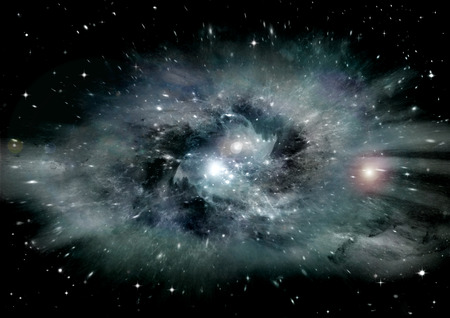Introduction: Navigating Belief and Doubt in British Culture
In the tapestry of British identity, threads of curiosity and scepticism have long been interwoven, shaping not just how people view themselves, but also how they engage with the wider world. The British are renowned for their wry humour, keen sense of irony, and a measured approach to new ideas—qualities that contribute to a distinctive cultural scepticism. Yet within this environment of polite doubt and rational discourse, astrology has found a quietly persistent place. Is it simply a whimsical diversion or something deeper—a star-studded language that resonates with the nation’s longing for meaning amidst uncertainty? As we explore the complex landscape of belief and doubt in Britain, astrology emerges as both a subject of gentle ridicule and an unexpected source of comfort, reflecting the nuanced ways in which Britons negotiate tradition, modernity, and their own inner worlds.
2. Historical Roots: Astrology’s Journey through British Tradition
Astrology’s presence in Britain is far from a modern curiosity; it is woven into the nation’s cultural fabric, reflecting both skepticism and fascination through the centuries. From medieval court astrologers to the daily horoscopes in contemporary tabloids, astrology’s journey mirrors the shifting tides of British identity and societal values.
The Medieval and Tudor Eras
In medieval times, astrology was regarded as both a learned science and a mystical art. Royal courts consulted astrologers for guidance on matters of state, love, and war. The likes of John Dee, astrologer to Queen Elizabeth I, exemplify how seriously celestial insights were taken at the highest levels of power. Yet, even then, there existed an undercurrent of suspicion—astrology’s alignment with magic occasionally brought its practitioners under scrutiny from church and crown alike.
Astrology’s Social Functions Over Time
| Period | Role of Astrology | Cultural Reception |
|---|---|---|
| Medieval Era | Royal advisement, medical practices | Elite fascination, religious skepticism |
| Tudor England | Courtly decision-making, public almanacs | Mainstream popularity, academic debate |
| Victorian Period | Parlour games, self-help guides | Widespread curiosity, polite skepticism |
| Modern Day | Personal insight, entertainment media | Dichotomy of belief and cynicism |
Victorian Rationalism and the Birth of Skepticism
The rise of scientific thinking during the Victorian era ushered in an age of doubt. As Britain championed rationality and empirical evidence, astrology shifted from the centre stage to the margins—yet it never fully disappeared. Instead, it adapted: moving into parlours as a fashionable diversion and appearing in newspapers as light-hearted amusement. This duality—of intrigue and incredulity—became a defining feature of British attitudes toward astrology.
A Reflection of National Character?
The historical interplay between astrology and British identity reveals much about the nation’s character: pragmatic yet open to whimsy, skeptical yet quietly enchanted by the stars. Astrology’s endurance suggests a persistent need for meaning amidst uncertainty—a trait that resonates deeply within the nuanced landscape of British cultural life.
![]()
3. Skepticism in the British Psyche: Politeness, Pragmatism, and Critical Thinking
When we peer gently into the heart of British culture, a tapestry woven with threads of subtlety and intelligence emerges—one where astrology’s allure is often met with a reserved yet unmistakable skepticism. The British are renowned for their dry wit, their artful understatement, and a penchant for critical thinking that colours many facets of daily life. This unique blend shapes not just casual conversations in pubs or family gatherings over tea, but also influences the collective response to ideas like astrology.
British politeness plays a curious role in this dance with the stars. Often, when astrological topics arise, there’s a respectful nod or a knowing smile rather than outright dismissal. It’s not uncommon for someone to quip, “Well, I’m a typical Capricorn—so of course I don’t believe in it!” This gentle irony masks a deeper pragmatism: while curiosity may be piqued by horoscopes, there’s an underlying insistence on evidence and practicality—a legacy of both Enlightenment values and generations raised on reason.
Wit serves as both shield and sword in these exchanges. Where others might engage with fervour or faith, the British are more likely to respond with a self-deprecating joke or a clever aside. This humour is not merely deflection; it’s a way to explore ideas without appearing credulous or naïve. Astrology thus becomes less about dogmatic belief and more about playful speculation—something to enjoy over coffee rather than consult in crisis.
Understatement further tempers the national approach to astrology. Instead of grand declarations about destiny written in the stars, you’re more likely to hear someone murmur, “There might be something in it…” before quickly changing the subject to the weather. This modesty reflects an ingrained caution against appearing too earnest or gullible—a trait that has long defined British social interactions.
Most importantly, critical thinking is held as a quiet virtue throughout British society. From school debates to dinner party discussions, questioning and analysing—even gently poking holes in popular beliefs—are encouraged. Astrology isn’t immune to this scrutiny; many delight in dissecting star sign stereotypes or challenging the logic behind planetary influence. Yet, this skepticism is rarely harsh. Instead, it carries a warmth—a readiness to see both the charm and limitations of astrology without giving itself entirely over to cynicism.
In sum, British attitudes towards astrology are shaped by an elegant interplay of politeness, wit, understatement, and critical thoughtfulness. These qualities create space for astrological musings at the fringes of cultural life—always present but never overwhelming—allowing individuals to engage with cosmic curiosities without forsaking their trademark reserve or intellectual rigour.
4. Enduring Fascination: The Quiet Allure of Astrology in Everyday Life
Despite the famously reserved and rational British temperament, astrology has maintained a quietly magnetic presence in daily life across the UK. Whether it’s a glance at the horoscope section in a tabloid during a morning commute or a playful exchange about star signs during a cosy evening at the pub, astrology weaves itself into British routines in both subtle and charming ways.
Much of this enduring appeal is rooted in tradition—horoscopes have long been a staple in popular newspapers such as The Sun and The Mirror, serving as both entertainment and a gentle invitation to reflect on life’s possibilities. Even as public discourse often leans towards skepticism, the private act of checking one’s sign remains widespread. In fact, it is not uncommon for even the most stoic Brit to know their sun sign or occasionally ask, “What’s your star sign then?” as an icebreaker.
The Many Faces of Astrological Engagement
| Setting | How Astrology Appears | Cultural Nuance |
|---|---|---|
| Tabloid Newspapers | Daily horoscopes read over tea or breakfast | A guilty pleasure, rarely admitted but widely enjoyed |
| Pubs & Social Gatherings | Light-hearted banter about sun signs and compatibility | An easy way to spark conversation without getting too personal |
| Online Communities | Meme sharing and light debates about “Mercury retrograde” mishaps | A modern take, providing both humour and solace in uncertain times |
| Personal Reflection | Quiet moments reading yearly forecasts or birth chart interpretations | A private ritual for hope or self-understanding amidst British reserve |
The Paradox of Private Indulgence and Public Cynicism
This gentle allure is sustained by a peculiar British paradox: outwardly dismissing astrology as frivolous while inwardly seeking its comfort. There is a subtle delight in poking fun at Mercury retrograde woes or blaming an awkward encounter on “typical Virgo behaviour,” even among those who claim not to believe. Such habits speak less to gullibility and more to a cultural appreciation for whimsy—a small rebellion against everyday seriousness.
Why Do So Many Quietly Indulge?
- Safe Escapism: Astrology offers an accessible way to dream, wonder, and play with identity—without ever having to take it too seriously.
- Cultural Bonding: Sharing astrological anecdotes creates gentle bonds, allowing friends and strangers alike to connect through shared stories and laughter.
- Nostalgia & Tradition: For many, reading horoscopes recalls memories of family rituals or childhood curiosity—making astrology feel familiar rather than foreign.
- Soulful Curiosity: Beneath the scepticism lies genuine curiosity; perhaps the stars do hold some small wisdom about love, luck, or life’s mysteries.
The Soft Power of Suggestion
Ultimately, astrology’s quiet allure persists because it gently suggests possibility—inviting us to wonder what might be written for us in the stars, even if only for a moment. In this way, astrology becomes less about absolute belief and more about embracing life’s uncertainties with a touch of magic and quintessential British wit.
5. Astrology and Social Connection: Belonging in a Diverse Society
In the patchwork quilt of British society, where accents, backgrounds, and beliefs intermingle on busy high streets and quiet village greens alike, astrology often emerges as a gentle thread weaving people together. While some may approach horoscopes with characteristic British scepticism—a raised eyebrow or a wry smile—many find in star signs a common language that softens social boundaries. In pubs from Manchester to Brighton or over cups of tea in London’s diverse neighbourhoods, the simple question, “What’s your sign?” becomes more than small talk; it is an invitation to share, to compare quirks, and to spark laughter. This casual engagement with astrology acts as a conversational bridge, sidestepping potential cultural divides by focusing on shared human experiences—love, ambition, moodiness, or the universal search for belonging.
For those navigating Britain’s multicultural landscape, astrology offers a way to connect without presuming too much or treading on sensitive ground. Unlike politics or religion—which can polarise—astrology is light enough to keep things friendly but personal enough to feel meaningful. Discussing whether Mercury retrograde is truly to blame for missed trains or miscommunications allows strangers to become acquaintances and acquaintances to become friends. It’s a subtle tool for connection: one that honours both the British penchant for understated intimacy and the openness required in an ever-diversifying society.
6. Modern Manifestations: Astrology’s Place in Contemporary British Culture
In the bustling heart of contemporary Britain, astrology has found itself reimagined and revitalised, threading its way through digital landscapes, wellness movements, and the nuanced identities of a new generation. Where once horoscopes were quietly tucked away in the back pages of broadsheets, today’s astrological insights are shared on Instagram stories, TikTok trends, and bespoke smartphone apps, each tailored to suit a uniquely British blend of scepticism and curiosity.
The Digital Renaissance of the Zodiac
Astrology’s intersection with digital media has transformed it from a parlour amusement into an accessible daily ritual. British youth engage with astrology not just for guidance but as a form of self-expression and communal bonding. Online communities gather around moon cycles and Mercury retrogrades, using memes and witty banter that reflect classic British humour—dry, self-deprecating, yet unmistakably affectionate. This digital renaissance allows ancient wisdom to be filtered through the lens of modern technology, making astrology both familiar and refreshingly novel.
Wellness Culture and Cosmic Self-Care
Parallel to this digital surge is astrology’s integration into the broader wellness culture sweeping across Britain. For many young Britons, star signs are less about fate and more about mindfulness—a gentle invitation to pause, reflect, and nurture oneself. Monthly zodiac forecasts are paired with herbal teas or yoga sessions, with practitioners emphasising balance over prediction. This approach resonates especially in urban centres like London or Manchester, where life can feel frenetic; here, astrology offers a soothing antidote to the relentless pace.
Reinterpreting Traditions: A New British Astrology
The most striking aspect of astrology’s current role is how young Britons reinterpret its traditions. Rather than accepting rigid stereotypes associated with each sign, there is a growing trend towards inclusivity and personalisation. Social media influencers craft horoscopes that celebrate diversity—acknowledging different cultural backgrounds, gender identities, and lived experiences within the UK. In this spirit, astrology becomes less prescriptive and more empowering: a tool for introspection rather than prophecy.
Thus, in modern Britain, astrology is neither wholly embraced nor dismissed. Instead, it weaves through everyday life as a quiet companion—sometimes playful, sometimes profound—offering comfort amidst uncertainty while reflecting the evolving tapestry of British identity.
7. Conclusion: Balancing Reverence and Rationality
As we reach the end of our exploration into astrology’s role within British identity, it’s clear that the ongoing dialogue between skepticism and support is very much alive—woven through the cultural fabric of modern Britain like a subtle constellation in an ever-shifting sky. The British character is often described as pragmatic, reserved, and gently ironic, and yet, beneath this outward rationality lies an enduring fascination with the mystical, the unexplained, and the stars above. This dual nature—a blend of reverence for tradition and a healthy dose of critical thought—continues to shape how astrology is perceived and practiced across the UK.
The coexistence of belief and doubt creates a unique space for astrology in British life. On one hand, the nation’s renowned skepticism encourages thoughtful inquiry and debate about astrological claims, reinforcing values of reason and scientific inquiry. On the other hand, many Britons quietly turn to horoscopes for comfort or reflection during times of uncertainty, finding gentle wisdom in their star sign’s counsel. This delicate balance allows astrology to persist not as dogma, but as a cultural motif—one that invites both playful engagement and serious contemplation.
Ultimately, astrology’s presence in Britain serves as a mirror for broader questions about identity: How do we reconcile old beliefs with new knowledge? How do we honour tradition while embracing progress? The ongoing conversation between skeptics and supporters ensures that astrology remains relevant—not because everyone believes in it, but because it offers a shared language for expressing hope, curiosity, and self-discovery. In this way, the stars continue to inspire both reverence and rationality within British society, illuminating paths toward understanding ourselves and each other just a little better.


